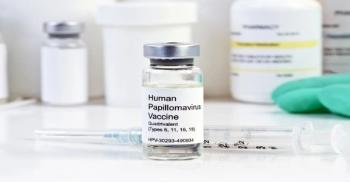
New research targets new compounds to increase efficacy of body’s own anti-cancer cells
A new study reveals that different compounds can impact the function of the body’s natural killer cells and provide clinicians with new tools in fighting cancer.
Natural killer T-cells (NKT) scour the body for cells that are stressed or not working correctly, such as cancer cells. Now a new study shows that a version of theses cells are particularly effective in mouse models when it comes to activating anti-tumor responses, too.
The study,“
The hope is that the study will help clinicians realize the vast amount of mechanisms the immune system has to treat cancers, said Steve Porcelli, MD, professor and chair of the department of microbiology and immunology, and scientific director of the Flow Cytometry Core Facility at Albert Einstein College.
Porcelli, a co-author of the report, and his research team areworking to optimize approaches for stimulating anti-cancer effects of one type of specialized lymphocyte called the “Natural Killer T-Cell,” or NKT cells.
“One thing that we would like clinicians to appreciate is the distinction between Natural Killer cells … and NKT cells,” Porcelli said. “These have some overlapping features, but they are completely separate populations of lymphocytes. Both populations have great potential for detecting and eliminating cancers, but they need to be activated through different pathways.”
The paper outlines the use of a new α-GalCer compound, called AH10-7 that stimulates NKT cells to produce a specific set of chemicals-called Th1 cytokines-that stimulate anti-tumor responses in the body.
In “humanized” mouse models, the NKT cells and new compound were tested against melanoma, and the response was a suppression of the spread and growth of melanoma cells in both standard and “humanized” mice-that is mice whose genetics have been altered to more closely reflect human cells.
Porcelli and his team’s research addresses the question of how to design medications that stimulate maximum anti-cancer activity of NKT cells.
“Ultimately, we envision combining this approach with other forms of immunotherapy to synergistically activate multiple components of anti-tumor immunity,” he said.
Preclinical data from mouse models shows that NKT cells can mediate responses against a wide variety of cancers, including solid tumors and hematologic malignancies, he said.
“It is too early to focus on specific patient populations, but the first steps of testing in patients would likely involve high risk cases of metastatic disease with few remaining therapeutic options,” Porcelli said. “As for all immunotherapies, the various strategies we envision for NKT cell directed therapies will require advanced healthcare infrastructure and will likely be costly.
“However, as other recent approaches to cancer immunotherapy show, these impediments can be overcome and should not stand in the way of aggressive development toward clinical applications,” Porcelli added.
The new approaches in NKT cell therapy outlined in the study are different from those currently used in clinical practice, which are mainly checkpoint inhibitors that augment the activity of conventional cytotoxic T-Cells.
“We believe that NKT cells are likely to synergize with conventional T-Cells in a variety of ways, and believe that there will be substantial benefit from combining NKT cell activators with other immune enhancing modalities,” Porcelli said, adding that he sees more optimization in the future development of NKT therapies. “We hope to see tailored immunotherapies emerge that are optimized for particular types of cancers, and personalized for individual patients. We would like to see NKT cell activators included in the development of these multicomponent, next-generation immunotherapies.”
Newsletter
Stay informed and empowered with Medical Economics enewsletter, delivering expert insights, financial strategies, practice management tips and technology trends — tailored for today’s physicians.






